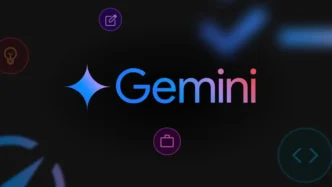Google is launching a trio of AI language learning tools designed to make learning a new language faster, smarter, and more personal. These tools are still in early testing, but they could signal Google’s ambition to challenge platforms like Duolingo using its powerful Gemini AI.
The tools aim to fix one of the biggest frustrations for language learners: knowing what to say when you actually need it. By using Google’s AI, learners can get real-world support, learn casual expressions, and connect words with the world around them.
Tiny Lesson: Learn What You Need, When You Need It
The first experiment is called Tiny Lesson. It allows users to describe a real-life situation—like “losing a passport”—and get vocabulary, grammar tips, and sample sentences related to it. For instance, you might learn to say, “I lost my passport” or “I want to report it to the police.”
This experiment makes learning more relevant. Instead of memorizing random words, you learn language that fits the situation you’re in. That kind of personal relevance can boost confidence and help you remember phrases better.
Slang Hang: Talk Like a Local
Next is Slang Hang, a feature that helps you sound more natural by teaching you informal and local expressions. When learning a new language, most lessons start formal. That’s helpful, but not how real people talk on the street.
Slang Hang uses AI to generate lifelike conversations between native speakers. For example, it might simulate a scene between a street vendor and a customer or two friends catching up on a subway. You’ll see one line of dialogue at a time, and you can hover over unfamiliar words to learn their meaning and usage.
Google admits that the AI sometimes misuses slang or even invents words, so it recommends checking unfamiliar terms with reliable sources. Still, this tool helps users understand how real people talk, which is often missing from standard lessons.
Word Cam: Learn Words from Your World
The third experiment is called Word Cam. It lets you use your phone’s camera to snap a photo of your surroundings. Then, Google’s Gemini model labels the objects in the language you’re learning.
For example, if you take a picture of your kitchen, the tool might identify items like “sink,” “blender,” or “blinds”—words that often get left out of traditional lessons. It even suggests related vocabulary to broaden your word bank.
This kind of visual learning helps bridge the gap between everyday experiences and vocabulary development. It also reveals how much you don’t know yet, which motivates learners to keep exploring.
Supported Languages and How to Access
These AI language learning tools support a wide range of languages. They include Arabic, Chinese (mainland China, Hong Kong, Taiwan), English (U.S., U.K., Australia), French (France, Canada), German, Greek, Hebrew, Hindi, Italian, Japanese, Korean, Portuguese (Portugal, Brazil), Russian, Spanish (Spain, Latin America), and Turkish.
You can try the tools through Google Labs, the company’s hub for experimental features. While still in beta, the features offer a fresh, immersive approach to language learning by making it more dynamic and personalized.
Google is clearly investing in tools that go beyond flashcards and quizzes. By leveraging AI, the company is offering new ways to learn through context, culture, and personal experience. Whether it’s chatting with AI-generated locals or learning words from your surroundings, these tools show how AI language learning tools can make education more adaptive and fun.
Though still early in development, these experiments suggest a strong push by Google to reshape how we learn languages—making it more human, useful, and engaging.













